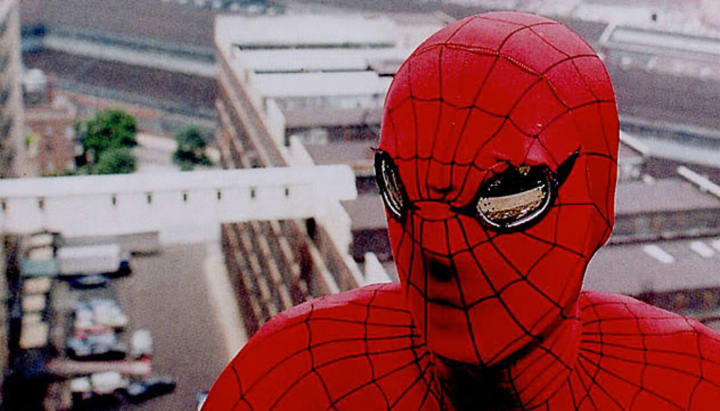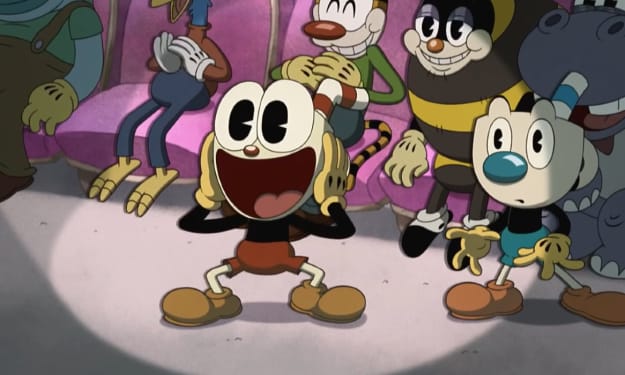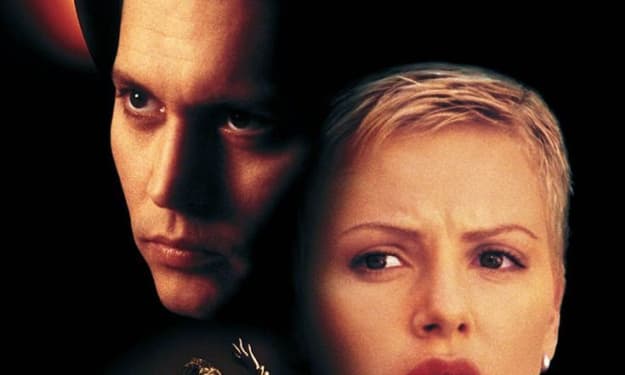Every Non-MCU Marvel Film, Ranked and Explained (Part One)
The 1970s and the Birth of Marvel's Proto-MCU

No matter how anyone feels about it, the Marvel Cinematic Universe is one of the biggest properties in pop culture today, and it will likely stay that way for a very long time to come. That being said, the MCU wasn't always the near-exclusive home for live-action adaptations of fans' favorite comic book characters. Like so many other products of their time, some of the most classic Marvel heroes had a place for themselves on the silver and small screens long before the rise of shared multimedia universes as they stand today.
In fact, the live-action Marvel adaptations of the 1970s are in and of themselves one of if not the earliest prototype for the modern MCU. That doesn't mean that all of these films are inherently better than or equivalent to the Marvel Studios productions of today, but it does mean there is good reason to revisit them. If I'm going to sit through at least a half-dozen likely washed-out superhero movies, though, I'm going to lean into it and say that this will just be the first in a series covering every pre-MCU Marvel movie. Except there are non-MCU Marvel movies made after the MCU became a thing, so really I'm going to have to cover every non-MCU Marvel movie instead. And, with definitions and exceptions already running rampant, I need to set some ground rules.
The Ground Rules - I'm (Probably) Sticking to 'Em
First things first, let's talk about what a movie even is. It would be easy enough to assume that anything people buy tickets to see in a theater would be a movie, but that isn't true. Many of Marvel's overseas theatrical releases in the company's first major foray into cinema were composite films crafted from multi-episode arcs of various television series. As such, they aren't going to qualify for a spot on this list, nor will anything produced to be distributed at under feature-length such as the serialized Captain America features of the 1940s. At the same time, multiple titles that ended up on the small screen were produced as backdoor pilots for their respective shows, and while their efforts were pointedly focused on television, they are still movies unto themselves. And, as much as I love animated features, they probably deserve to be examined through their own lens.
Even though this initial entry is only going to cover the Marvel films of the 1970s, it should be mentioned that there will inevitably be some questions as to whether certain modern Marvel features qualify as taking place within the MCU due to various Multiversal shenanigans. As far as those queries are concerned, I will answer them only when I get to the point where I am forced to genuinely consider whether there isn't some hidden thread directly tying Morbius to the events of X-Men: Apocalypse. These rules are also subject to change at any time. You're not my dad, and I don't owe you explanations for why I might tweak things to avoid personally (re)watching Morbius and/or X-Men: Apocalypse.
Last thing, when I say non-MCU Marvel movies, I don't mean every non-MCU movie based on a property that just so happens to be owned by Marvel. We're talking about Marvel movies here. Men in Black and Argylle aren't my problem right now.
So, with all that out of the way, let's dive into things with the very first Marvel feature film - 1977's Spider-Man.
Spider-Man (1977)

Let's just get it out of the way now... This is a backdoor pilot for The Amazing Spider-Man TV series and was only released theatrically outside of North America. If I'm being honest, those types of films make up half of this "Part One" article, and it's only four entries long. Six if you count both halves of the two double entries. But, hear me out, it would have been nine if I hadn't cut the composite films while laying out the rules for this whole thing, and three of them would have brought the grading curve down lower than I am personally comfortable with. Spider-Man: The Dragon's Challenge sucks, and I will not make myself watch it just to also make the rest of the era look worse.
What doesn't suck, on the other hand, is Spider-Man, the 1977 made-for-tv movie that introduced the world to Nicholas Hammond as an inexplicably university-aged Peter Parker who steps into the titular role after being bitten by a radioactive spider. As expected, this leads to Peter fighting costumed criminals including Edward Byron, a middle-aged man who runs self-help seminars and also hypnotizes random New Yorkers into killing themselves unless someone pays his exorbitant ransom. On the surface, Spider-Man is about as campy as it could get, but it helped prove that the superhero genre was still alive and well in its era, and certain aspects still stand out in genuinely astonishing ways today.
Like, holy shit y'all, the scenes of Spider-Man swinging between buildings and going from skyscraper to skyscraper were made by filming someone actually doing that. The fact that production allowed such a sequence in the first place is an indictment of how lax studios and insurance companies were willing to be in the '70s, yet pulling it off and shooting from multiple angles provided some of the most memorable B-roll footage in Hollywood. Also, the movie as a whole is fine. Nicholas Hammond is an icon for a reason, even if the first supervillain he faces off against as Spider-Man is just some asshole named Byron. I'm calling it B- at the absolute worst. 7.5/10? If we're being honest, I'm still figuring out how exactly I need to be grading these in order to properly rank them at the end of all this.
The Incredible Hulk/Return of the Incredible Hulk (1977)

For everything that Nicholas Hammond's Spider-Man accomplished by bringing Peter Parker to life on the small screen, Bill Bixby and Lou Ferrigno's The Incredible Hulk gave rise to a whole new kind of pop culture phenomenon. This is true not just in terms of The Incredible Hulk's success as a standalone show, but in regards to the doors it opened for other Marvel heroes to take the spotlight years after it ended.
And we will definitely get to those later, but right now we're talking about two things: 1977's The Incredible Hulk and The Return of the Incredible Hulk, two made for tv movies that were shot as backdoor pilots to the series that would take over the airwaves less than six months after they aired in November. If we examine these through the lens of a comic book purist, it would be easy to say that these aren't that good just for the vast number of changes made to its core cast of characters and overarching story, so we're not going to do that. Instead, we'll examine them on their merits as individual entries into the wider Marvel mythos, which makes it easy to say that they're pretty solid, if somewhat oddly paced.
Bill Bixby is utterly enthralling as David Banner. His entire impetus for becoming the Hulk might be a little bit shallow, but Bixby carries them as well as any actor possibly could. His Banner is deeply empathetic in ways that help him to connect with both the audience and his fellow characters, at least the ones he doesn't end up tossing around as the Hulk. On the other end of things, Lou Forrigno is a beast as the Hulk in the best of ways. He isn't always scary, but he is consistently imposing, at least when he isn't tugging at the audience's heartstrings. Both actors offer up some truly profound moments that highlight the emotional depth of their respective sides of the same character, and even if some of them get undercut by the Hulk scaring himself by accidentally spitting booze into a bonfire, the majority are allowed to follow through with their intended trajectories.
Surprisingly, some of the best moments from both The Incredible Hulk and The Return of the Incredible Hulk are rooted more deeply in soap opera style mysteries than they are in any sort of hard-hitting action. This allows the less fantastical aspects of the story to take center stage over the vague sci-fi setup, which has really always been what the Hulk was about. Even in the pages of Marvel Comics, Bruce Banner's journey was never centered on the Hulk's propensity for wanton destruction, but on the former's quest to come to terms with himself and what he had become. There is some slight edge that I believe The Return of the Incredible Hulk over its predecessor, though not enough to make any difference to both films' combined an even B. Or 8/10. Still figuring this out.
Doctor Strange (1978)

Alright, y'all, we're about to get into some weird stuff with this one, and most of it isn't for the better. 1978's Doctor Strange, like The Incredible Hulk before it, took some major liberties with the source material, and while they were largely questionable, none of them were necessarily where the movie went wrong.
Casting Peter Hooten as Doctor Stephen Strange, in this version a psychologist rather than a surgeon, was a great choice, as was casting Jessica Walter as Morgan Le Fay. Anne-Mari Martin's performance as Clea Lake is also pretty great, even if she isn't anywhere close to the Clea fans know from the comics. And positioning the film as a psychedelic fantasy-action experience was another top-notch idea given the era that the source material was being adapted in, though not for the era that the material was ultimately being pitched to. Despite its generally solid casting and the fact that it was produced and directed by TV legend Phillip DeGuere, Doctor Strange just didn't find a footing with audiences.
1978's Doctor Strange isn't flat-out bad, but it is super flat. This is most true in terms of the film's action and pacing, yet at times its acting is just as bad, even if only because of Doctor Strange's primarily static "action" scenes. A lot of the mystical combat between Hooten's Strange and Walter's Morgan La Fay is basically just the two stars standing still and pointing vaguely in each other's direction while poorly-aged SFX sends beams of light back and forth between them. Thankfully, Hooten and Walters are each equally capable of carrying the most stunted of scenes. even those where the latter is forced to converse with her demonic master in the form of what looks like red linen draped over a half-melted plastic skeleton. If it had been released a few years earlier, or maybe a few years later with slightly better production values, it may have actually garnered the series it was set up to lead into. All in all, Doctor Strange is worth watching. It isn't great, but it's worth watching. 6.5/10.
Captain America/Captain America II: Death Too Soon (1979)

1979's Captain America and its sequel, Captain America II: Death Too Soon, mark the final Marvel movies of the decade. Just as The Incredible Hulk and Doctor Strange had completely retooled their titular heroes' origin stories, Captain America introduced a Steve Rogers who never lived through the Second World War. Instead of being a man out of time, the version of Steve Rogers on display here is former Marine turned traveling illustrator who for some reason comes under fire from mysterious assailants and is saved through the power of an experimental FLAG formula.
1979's Captain America leaves viewers with a lot of questions. Questions such as, "Why not call it a Super-Soldier Serum like in the comics," and, "Why doesn't he just ride the rocket-motorcycle instead of hauling it around in his van?" Neither of these questions are given a satisfactory answer. Also Captain America's shield is actually the detachable, indestructible windshield of his aforementioned rocket-motorcycle. There isn't a lot of this that makes sense, is what I'm saying.
Listen, you can break almost any pop culture property down under a microscope and find a dozen reasons why it's kind of dumb, but the 1979 Captain America movies really do stand on their own when it comes to the number of questionable decisions made during their production. Rod Holcomb's directing isn't exactly E.R. quality, but he wasn't phoning it in with the first film, either, while Ivan Nagy's directing on Death Too Soon is probably some of his best work apart from CHiPs. All the same, Reb Brown isn't a bad Captain America, he just isn't the Captain America, even if he is the reason that the Steve Rogers of the comics is now a gifted illustrator in his own right. If you like The Six Million Dollar Man, then you might like Captain America and Captain America II: Death Too Soon. If you like Captain America comic books, maybe go in with lower expectations than usual. 6/10.
Final Notes
After going back over every single one of these films, the thing that stands out the most is that each leading hero was given a completely retooled origin story save for Nicholas Hammond's Peter Parker. I'm not sure if this is because Spider-Man's origin is just that ingrained in the general zeitgeist or if it was because the writers felt it was already tailored to the silver screen, but it is something interesting to consider.
That the Hulk, Doctor Strange, and Captain America all got new origins also makes the 1970s lineup of Marvel superheroes feel like they belong to their own unique corner of the Multiverse which, years later, would be precisely the case. It really is more than a little bit incredible that Marvel was trying to weave together a shared cinematic universe this early on.
The Marvel Films of the 1970s - Ranked
#1 - The Incredible Hulk/The Return of the Incredible Hulk (1977) - 8/10
#2 - Spider-Man (1977) - 7.5/10
#3 - Doctor Strange (1978) - 6.5/10
#4 - Captain America/Captain America II: Death Too Soon (1979) - 6/10
That's it for now, I suppose. Next time, I'll be looking at the end of the 1970s Marvel era, which just so happened to take place at the tail end of the 1980s. I'll also be checking out two very different, very polarizing Marvel movies that existed outside of everything else that existed on screen at the time. One of them has David Hasselhoff in an eyepatch, and the other has duck sex, so that's neat, I guess... Shit, man, I really have to rewatch all of these. Okay... I got this.
If you enjoyed this article, hit some buttons to show your support by liking, subscribing, and checking out John's other content. If you like unedited ramblings and mediocre fiction, check out his profile on Vocal. If you like pop culture and comic book nonsense, check out his work over on CBR. And, if you like Big Bad Beetleborgs and want to support John's efforts to remake it into a neon-lit fever dream, please email or message him directly on social media to work out the logistics of blank check investing (tips also accepted).






Comments
There are no comments for this story
Be the first to respond and start the conversation.